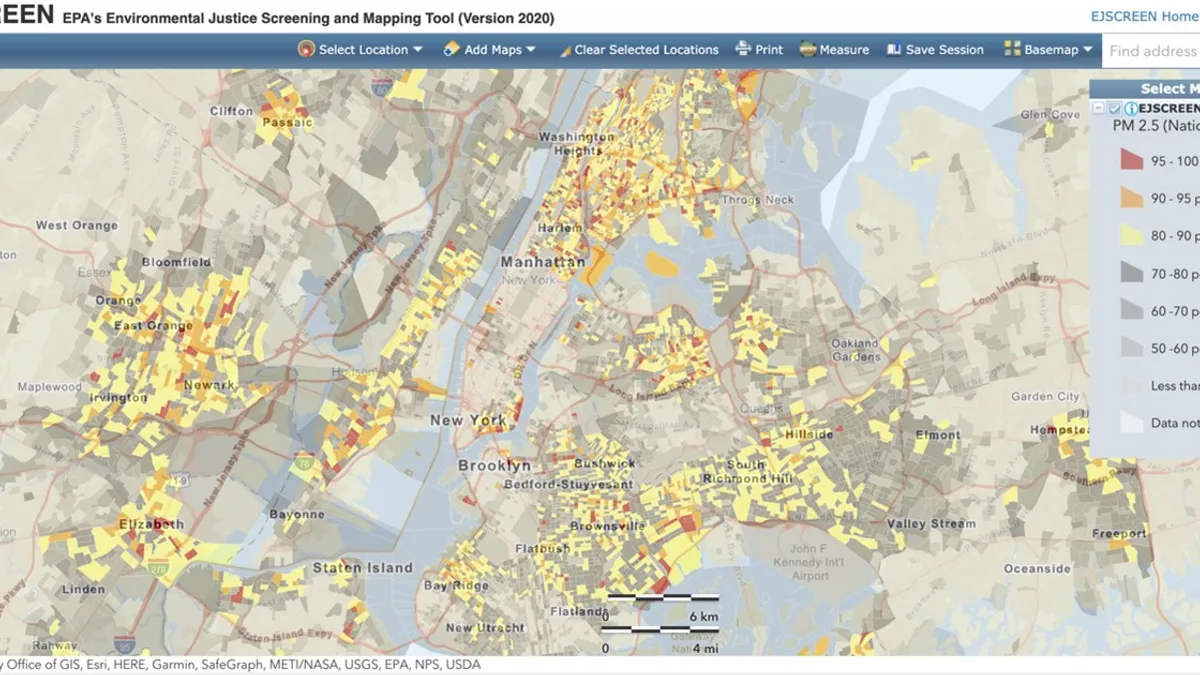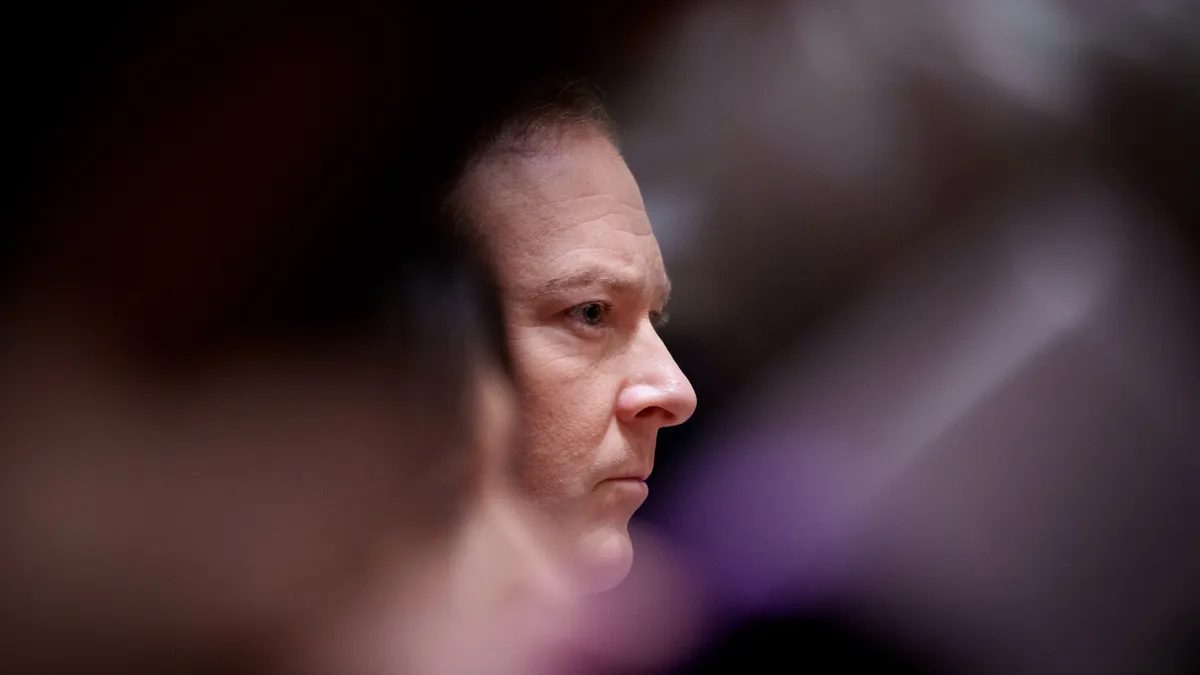Efforts by CFOs to build sustainable businesses are, in one respect, unsustainable.
CFOs for months have faced rising pressure from shareholders, regulators and lawmakers to align their companies with environmental, social and governance (ESG) best practices.
When crafting a response, CFOs must first choose from a jumble of inconsistent performance measures. They confront different approaches to gauging many facets of sustainability — including carbon emissions — and must pick from a muddle of more than 15 ESG reporting frameworks that vary in detail and scope.
CFOs also face scrutiny from several sustainability rating services that gather different categories of data and use a variety of assessment methods. Raters sometimes peg the same company at different places in the ESG pecking order.
“All these different methodologies are leading to a serious practical problem of fragmentation,” according to Shari Littan, director for corporate reporting research and policy at the Institute of Management Accountants. “Companies are unsure about what to report on.”
CFOs can navigate this murky landscape, and fend off shareholder activists, by pursuing a range of tactics — from preparing ESG talking points and reaching out to shareholders most focused on sustainability, to creating a company-wide ESG task force and tying compensation to sustainability goals, according to attorneys and ESG experts.
Regulators need to step in and bring clarity to ESG benchmarking, according to Allison Herren Lee, a commissioner at the Securities and Exchange Commission (SEC). “Without regulatory intervention, I think at this point we’re going to continue to see informational gaps and inadequacies.”
SEC Chair Gary Gensler has said that the agency plans to release proposed rules for mandatory climate risk disclosures by early 2022 that will aim to give investors “consistent, comparable, and decision-useful” company data. He has also asked SEC staff to propose a regime for workforce disclosures.
Yet CFOs who wait for final SEC rules and a broad consensus on ESG benchmarking risk financial losses and missed profit opportunities, according to the attorneys and sustainability experts.
“It’s really important that CFOs be ahead of this, and the way to be ahead is to acknowledge that it’s a nascent area and you want to be a leader in it, not wait around for somebody to tell you what the rules are,” according to Nell Minow, vice chair at ValueEdge Advisors, which advises institutional investors on corporate governance.
Companies that wait for the rules may suffer reputational damage, criticism from large institutional investors such as BlackRock, State Street and Vanguard, and targeting by the activist hedge funds that launch most proxy battles, the attorneys and ESG experts said. They may also come under scrutiny by regulators increasingly focused on sustainability such as the SEC and Federal Reserve.
“What we’re seeing with public companies now is a cultural shift catching up with them,” according to Patrick Gadson, co-head of the shareholder activism practice at Vinson & Elkins. “All of the tipping points for the various ESG issues are tipping at the same time — no one is immune.”
‘Tectonic shift’
CFOs who make a convincing case for sustainability can reduce their companies’ borrowing costs and lift their share prices. They tap a surge of capital flowing into ESG-focused index funds and companies that are deemed sustainable.
Global ESG investment soared 55% to $35.3 trillion last year from $22.8 trillion in 2016, according to the Global Sustainable Investment Alliance. The total will probably exceed $50 trillion by 2025, making up more than one-third of the projected $140.5 trillion in global assets under management, according to Bloomberg.

"There's a tectonic shift happening right now in investor sentiment that is moving capital at scale into sustainable strategies,” Paul Bodnar, global head of sustainable investing at BlackRock, said on Oct. 11 at a meeting on sustainability sponsored by the Organization for Economic Cooperation and Development.
Shareholders today demand company information on ESG with the same intensity that drove New Deal legislation mandating financial disclosures and creating the SEC, Lee said.
During the 2021 proxy season shareholders filed a record number of ESG-related proposals, PwC said. Twelve environmental proposals passed, according to Sullivan & Cromwell. Eleven of them were climate-related, requiring either more openness or adoption of carbon emissions targets and gaining from 57% to 98% shareholder support.
“I don’t think there is any historical precedent for the demand that’s out there from investors for this new type of information for climate and ESG, unless you go back to the 1930s,” Lee said. “Many, many investors have made it very clear that they want to steer their capital toward these types of opportunities.”
Facing the same investor pressure as the SEC, many public companies have asked the agency for guidance on ESG disclosure, Lee said last month during an Economist webcast.
“This is unlike anything I’ve seen,” she said. “The issuers are now actually coming to us and clamoring for some level of regulatory intervention in order to achieve harmonization and a more level playing field.”
Among the companies in the Standard & Poor’s 100, 92% percent plan to set goals for reductions in greenhouse gas emissions, according to Ceres, a non-profit advocate for sustainability.
Big oil
A proxy defeat at Exxon Mobil underscored for CFOs the hazards of shrugging off shareholder concern about sustainability, the attorneys and ESG experts said. Engine No. 1, a hedge fund, won investor support in May for replacing three directors on Exxon’s board.
Engine No. 1 rallied retail and institutional investors — including BlackRock, State Street, Vanguard and California Public Employees Retirement System — by arguing that Exxon had wasted capital on oil projects that yielded meager returns while ballooning company debt. It also said Exxon lacked a solid plan for shifting to cleaner sources of energy.
ESG principles loomed larger in shareholder activism this year after the hedge funds that launch most proxy fights realized that large institutional investors “started to care about climate change in corporate director elections,” according to Kai Liekefett, a partner and co-chair of the shareholder activism practice at Sidley Austin. Hedge fund activists now can more easily link a company’s financial performance to ESG topics.
Like politicians, hedge funds “do the functional equivalent of kissing babies, even if they hate babies, and pretend to care about the environment” in order to rally shareholder support, Liekefett said. “This is something that the voters care about, so they pretend to care about it too."
Exxon’s defeat will probably spur similar activism in coming proxy seasons, according to Beth Saunders, a partner at Clermont Partners.
“If I were an activist, I know I’m going to get a lot of interest if I go environmental or social,” Saunders said. “The most target-rich environment right now is companies acting badly on the E and S side” of ESG.
Rather than wait for a consensus to gel on benchmarking, CFOs should try to avert criticism from shareholders, regulators and lawmakers by showing a commitment to sustainability, according to attorneys and ESG experts. CFOs should consider seizing the initiative by taking 11 steps:
1. Pick an ESG framework … or two
Among U.S. companies that publish ESG disclosures, 31% provide reports based on a framework recommended by the Task Force on Climate-related Financial Disclosures (TCFD), the International Federation of Accountants (IFAC) said in a study.
TCFD describes 11 types of disclosures across four areas: governance, strategy, risk management, and metrics and targets. It does not dive in depth into how to measure climate risk.
For specific measurement guidelines, CFOs should consider using a system created by the Sustainability Accounting Standards Board (SASB), according to attorneys and ESG experts.
SASB describes sustainability disclosures tailored to 77 industries across 11 sectors. Forty-eight percent of U.S. companies who publish ESG disclosures use SASB, according to IFAC.
“The SASB format represents the global standard for measurement,” Saunders said. “It tells you exactly what the measurement is, and that measurement is consistent throughout the rest of the industry.”
A company that makes claims or commitments on carbon emissions without following a measurement framework may come under fire for “greenwashing,” or masking unsustainable operations, according to Cynthia Krus, executive partner at Eversheds Sutherland.
“You have to have an articulated strategy because someone could make an accusation regarding greenwashing,” she said, noting that some companies use more than one ESG framework.
Along with the SEC, global organizations also aim to provide clarity and consistency on ESG measurement.
The International Financial Reporting Standards Foundation is creating a panel to draw up global sustainability disclosure guidelines. It plans to describe progress in forming the International Sustainability Standards Board at a U.N.-sponsored climate change conference beginning Oct. 31.
2. Prepare to collect new categories of data
Credible ESG disclosures may require a CFO’s staff to collect data for the first time across U.S. and foreign operations, including granular details of electricity, water or gas bills, or the use of specific offices or desks, Littan said.
“You might need to gather data from people who haven’t been involved in accounting processes before,” Littan said.
CFOs will probably also need to calculate the indirect carbon emissions by their suppliers of such products as smartphones and office carpeting, along with the carbon footprint of factories that provide outsourced manufacturing.
“If 100% of your manufacturing is outsourced, the correct answer about your emissions is not, ‘Not our problem,’” Saunders said. “That’s a huge sticking point, and a lever for activists."
3. Make the most of software
A CFO should consider using software linked to financial planning and analysis that enables tracking of metrics on a single dashboard, the ESG experts said. Such programs enable accountants to reconcile different ESG data and reporting systems, and avoid having to manually reformat spreadsheets with fresh information.
“The nice thing about going digital in that way is that the software can align these different frameworks,” Littan said.
4. Recruit ESG know-how
A CFO should press for weaving sustainability expertise into the C-suite, board and among the staff of financial executives, the attorneys and ESG experts said. An ESG task force made up of representatives from across a company, as well as shareholders and outside experts, can prove especially adept in identifying vulnerabilities and needed changes.
Exxon suffered in its proxy battle from a lack of climate expertise on its board, giving ammunition to claims by activists that it was unequipped to switch to renewable energy, Minow said.
“Don’t make it easy for activists — make it hard for activists,” she said. “The best way to do that is to have people on the board and on the CFO staff who are experts in these areas.”
5. Link compensation to ESG performance
A CFO will sooner promote sustainability by ensuring a company ties incentives and compensation for the board, C-suite and division leaders to environmental and diversity goals, the attorneys and sustainability experts said.
When assessing a company’s ESG vulnerabilities, “the single-best predictor for investment risk and litigation risk and liability risk is looking at pay,” Minow said. “If a company says, ‘We’re going to be carbon neutral by 2050,’ and they don’t make that an element of incentives and compensation, then they don’t mean it.”
Compensation is often at the center of proxy battles in which shareholder activists say leaders have disregarded risks or failed to unlock the full value of a company’s assets, Liekefett said.
“I’ve never had a proxy fight where activists say, ‘Hey, your performance sucks, but you deserve every dime you’re making,’” he said.
6. Subject ESG commitments to external review
To guard against complacency, a CFO should consider lining up an external review of sustainability policies and goals, the attorneys and ESG experts said. An outsider can find gaps between a company’s words and actions and pinpoint other vulnerabilities before shareholder activists do.
Companies often need an “activist, forensic assessment” to gain an objective view of their ESG performance, Gadson said. They usually get “a very bitter pill of medicine to swallow in terms of how they will be viewed by shareholders.”
7. Prepare talking points
Many shareholder activists want to sidestep the chief counsel, investor relations officer and other upper-level executives to discuss ESG goals with a CFO, Minow said. They seek direct dialogue with the top executive who controls spending and knows a company’s strategy, planning and financial outlook.
Rather than be caught flat-footed during meetings or earnings calls, a CFO needs to be ready with data on a company's carbon emissions and other environmental metrics, along with the racial, ethnic and gender diversity of the C-suite, board and staff, the attorneys and ESG experts said.
“CFOs are typically the second line of defense after the investor relations officer when investors want to talk to a company, so it’s important for CFOs to arm themselves with talking points,” Liekefett said.
“You should try to put hardcore data behind your statements of compliance with best ESG practices,” he said. “Having data is always more convincing than having fluff.”
8. Don’t react to only your loudest shareholders
Some CFOs make a commitment to disclosure or reach specific ESG goals based on pressure from their most outspoken investors, Saunders said. They may disregard their biggest sustainability challenges — and vulnerabilities —by inadvertently sidelining the views of their other shareholders, as well as customers and employees.
“Make sure you’ve considered feedback from all stakeholders before you commit to certain metrics and goals,” Saunders said.
9. Be careful what you disclose
CFOs should reach out to shareholders for an open dialogue about a company’s approach to ESG. Such conversations build credibility and avert potential conflicts with investors and other stakeholders, the attorneys and ESG experts said.
CFOs in such meetings should candidly describe unknowns, potential weaknesses and plans for improvement, Minow said.
Still, CFOs may need to withhold information that is at all suspect or that shareholders could interpret as a commitment to a goal or course of action, the attorneys and ESG experts said.
In disclosure, “you have to be very careful, and more likely you want to be a little bit middle-of-the-road” compared with your industry peers, Krus said.
Any comment or written statement construed as a commitment could return to haunt a CFO, Gadson said.
“What’s most important for CFOs in my experience is an understanding of being careful with how you articulate any goals that are in your public statements, because you will inevitably be reviewed by somebody who is running tests” on follow-through, he said. Still, “you don’t want to be so careful that your message is overly sanitized."
10. Prepare a detailed “break-the-glass” emergency plan
Shareholder activists often strike out of the blue.
A hedge fund executive in 2018 called a CEO at 8 p.m. on a Sunday saying he would receive a letter the following day with some “suggestions,” Liekefett said. At 7 a.m. the next morning, the activist publicly released a 23-page letter of criticism, sparking a firestorm of media coverage.
“You need to be prepared to fend off a blitzkrieg at a moment’s notice,” Liekefett said. A CFO should help oversee a plan that identifies the executive who takes the first call from activists and provides detailed talking points, a draft press release and templates for initial statements to investors, customers and employees, he said.
CFOs and other top executives should be “really well prepared with an extensive script and extensive response plan — sometimes from 30 to 50 pages long — fully vetted by counsel and experts to make sure you’re not losing days when you’re suddenly being trashed,” Liekefett said.
11. Sustain profit growth
Strong financial performance can often deter ESG-focused shareholder activism, the attorneys and sustainability experts said. Exxon’s board was especially vulnerable to an investor backlash this year after losing $22.4 billion in 2020.
Some of the largest activist hedge funds use sustainability as a wedge when they challenge leaders who they say are mismanaging company assets, Liekefett said.
“Economic activists like Elliott [Management] or Starboard [Value] or Carl Icahn won’t launch a campaign purely based on ESG topics — they are economic animals and in it for the money,” Liekefett said. “As long as you deliver enormous profits to shareholders, people don’t care much about ESG.”
CFOs should not let the current clutter of ESG benchmarks discourage them from publicly pursuing sustainability goals, the attorneys and ESG experts said.
“It’s definitely a fast-changing environment, and your No. 1 job is to make that into an asset rather than a liability,” Minow said. “You need to get out ahead of it and not be reactive to it.”
After all, she said, overcoming challenges to measurement “is why we pay CFOs the big bucks — that is exactly what their job is.”























